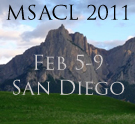| Warfarin (CoumadinTM) is one of the most widely prescribed anticoagulant drugs to prevent thrombosis for patients suffering from cardiovascular or other thrombotic risk factors. Warfarin decreases blood coagulation by inhibiting vitamin K-dependent post-translational modifications of plasma coagulation factors in the liver, e.g., Factors VII, IX, X and prothrombin. In this paired study, we performed an untargeted metabolomics analysis of plasma extracts from venous thromboembolism (VTE) patients on warfarin treatment and three months after being taken off the drug to gain further insights into the fundamental biochemical changes caused by treatment at the small molecule level. After non-linear alignment of LC-MS data, a paired t-test revealed that several important endogenous metabolites such as palmitoylethanolamide (PEA) were significantly altered. These molecules were targeted for MS/MS based identification. |
|



